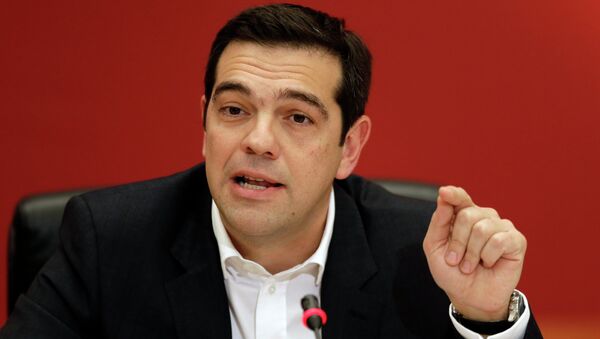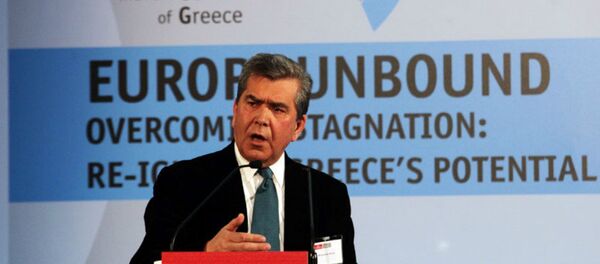MOSCOW, January 23 (Sputnik), Anastasia Levchenko, Daria Chernyshova — Speculation over the possible "Grexit" is irrelevant, and Europe is strongly committed to cooperate with Greece and bring the country to recovery after new government comes to power, Eurogroup president's spokesperson told Sputnik Friday.
"There are no real concerns about a possible Grexit. The leaders of all the large Greek political parties have indicated that they want Greece to stay in the eurozone. And there is a strong political commitment in Europe too to keep Greece in the eurozone," Simone Boitelle, spokesperson for the president of the Eurogroup told Sputnik.
Boitelle also added that Eurogroup's president Jeroen Dijsselbloem "has said on several occasions that the Eurogroup stands ready to work with the new government. Key is to keep Greece on the route of recovery."
Although there have been concerns in Europe over the possible exit of Greece from the Eurozone after the opposition force comes to power, the party claims Greece would stay its member-state. This falls in line with the sentiments among the Greek population. According to the latest polls, almost 76 percent of the country's citizens believe that Greece should stay in the Eurozone.
At the same time, in case Syriza party comes to power, there are a number of economic issues it should find common ground on with its European partners.
On Thursday, Syriza's leader Alexis Tsipras vowed that if his party wins the election, it would put an end to the widely unpopular austerity measures imposed by EU bankers, including severe budget cuts and tax hikes.
"Unfortunately there is a great chance for a confrontation [between the future Greek government and other Eurozone countries]. Every compromise will be politically costly for everyone," Aristides Hatzis, professor of law and economics at the University of Athens, told Sputnik on Friday. "I am not sure that everyone involved is ready to make the necessary concessions. The negotiators should be realistic and avoid political myopia," he added.
In 2010, a so-called troika of international creditors, including the International Monetary Fund, the European Union and the European Central Bank, agreed on a 110 billion Euro ($146 billion) bailout package for Greece to prevent a default on its large debt.
General elections will be held in Greece on Sunday, January 25, after the country failed to elect a president in the final round of voting in December, and the Greek parliament was dissolved.
According to recent polls, the left-wing Syriza party is likely to win the upcoming election, running six percent ahead of the incumbent New Democracy party.



